Mark Cavendish's unique guide to Milan-San Remo: 'Easiest race to finish but hardest to win'
"It builds like an opera, faster and faster, more tense and more tense": 2009 winner Mark Cavendish guides you through Milan-San Remo
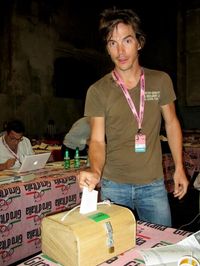
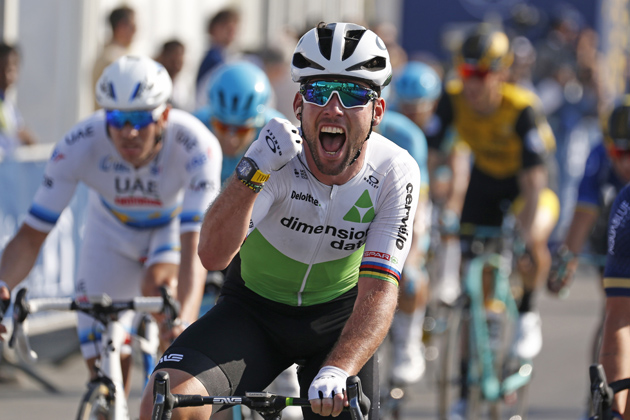
Mark Cavendish wins stage three of the 2018 Dubai Tour
The latest race content, interviews, features, reviews and expert buying guides, direct to your inbox!
You are now subscribed
Your newsletter sign-up was successful
Mark Cavendish explained that Milan-San Remo may be 'easy' to finish, but that every one of the 291 kilometres in Saturday’s race are complicated.
Milan-San Remo winner in 2009, Cavendish talked to Cycling Weekly prior to the 2015 event to give his opinion on the race's different phases, from Lombardia to Liguria, and to give you a unique insight into Italy's classic.
"It's the easiest race to finish, but the hardest to win," Cavendish said.
Cavendish shot like a missile from the peloton to catch and pass Heinrich Haussler for his win. In the subsequent years, he has been unable to repeat that success for various reasons.
Followers may look at the final finishing straight, on San Remo's high street, Via Roma, to review the race, but they should instead cast their eyes on the entire parcours.
Only looking at the road south from Milan and along the Ligurian coast, can you start to understand the mystery behind what Italians refer to as La Classica di Primavera.
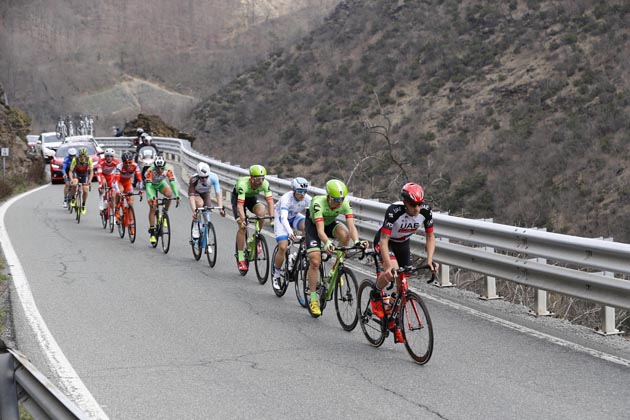
The classic will roll as always from Castello Sforzesco on Saturday (March 17) morning and continue through the flat Po Valley that is famous for producing Italy's rice. The only major bump on the race profile is the Turchino Pass, which takes the riders into Liguria and leaves another 160 kilometres to the possible sprint finish in San Remo.
The latest race content, interviews, features, reviews and expert buying guides, direct to your inbox!
"The first sprint comes through the first feed zone before the Turchino. We are not sprinting for position on the climb, but before the tunnel at the top and the descent," Cavendish explained.
"I remember in 2010, I had a broken spoke at the bottom before the climb, I had to change my front wheel, fight for position and chase on Turchino to get back. In the tunnel, the lights were out and there was a crash, and I stopped dead with riders just hanging out in the tunnel!

"On the descent, it doesn't really break up, not enough to split the race unless like that day, there's a massive crash. If you are not in good position, you can lose energy. If you are behind, it's enough to take your energy that you need for the final."
The Turchino Pass opens up to the coast and generally better weather and stronger winds. After a rapid descent to Voltri near Genoa, the race turns right and travels west along the coast. The road rises three times over the Tre Capi – Mele, Cervo and Berta – and turns inland off the Via Aurelia twice for the climbs to the hilltop towns Cipressa and Poggio.
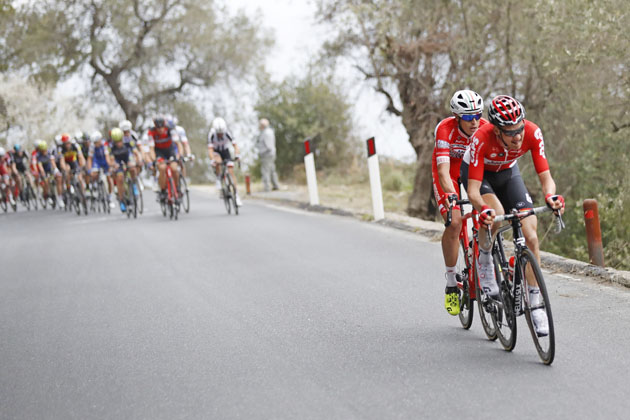
"It builds like an opera, faster and faster, more tense and more tense," Cavendish continued. "Finally you hit the Capi, there's going to be one or two guys that go, then a few more on Berta."
The short Berta climb leaves only 10 kilometres to the foot of the 5.65-kilometre climb to Cipressa at 239 metres. The Poggio, shorter at 3.7 kilometres, but more intense, comes 10 kilometres later. After the tricky descent past the deteriorating greenhouses, only 2.3 kilometres remain to the finish line.
"There are a lot more attacks on the Cipressa. The big spectacle is on the Poggio, not most of the way up, but at the top, in the last K."
>>> Milan-San Remo 2018: Preview and everything you need to know
The teams with attackers like Greg Van Avermaet (BMC Racing) and Michal Kwiatkowski (Team Sky) will try to wear down fast finishers like Alexander Kristoff (UAE Team Emirates), Elia Viviani (Quick-Step Floors) and Arnaud Démare (Groupama-FDJ) on the seaside, especially on the final two climbs, to avoid a sprint.
"There's no secret to winning San Remo, you just have to get everything right for 300 kilometres," said Cavendish. "I just break it down into chunks, it's probably the easiest way to count down the kilometres."
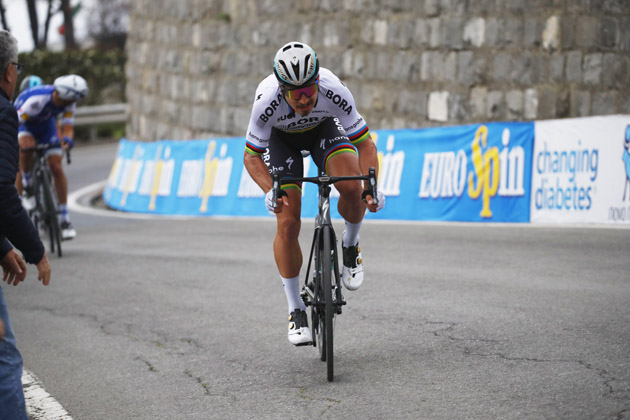
The forecast for 2018's race is for wet weather but still better than 2013, when snow forced the organiser to bus the riders around the Turchino. Clear skies and low wind speeds could help keep the race together – but Cavendish says that rain plays little part in the race.
"Rain's irrelevant, it's the same for everybody who lines up. We all have to deal with it. It's not like it's raining only on one person and dry on the others," said the sprinter from the Isle of Man.
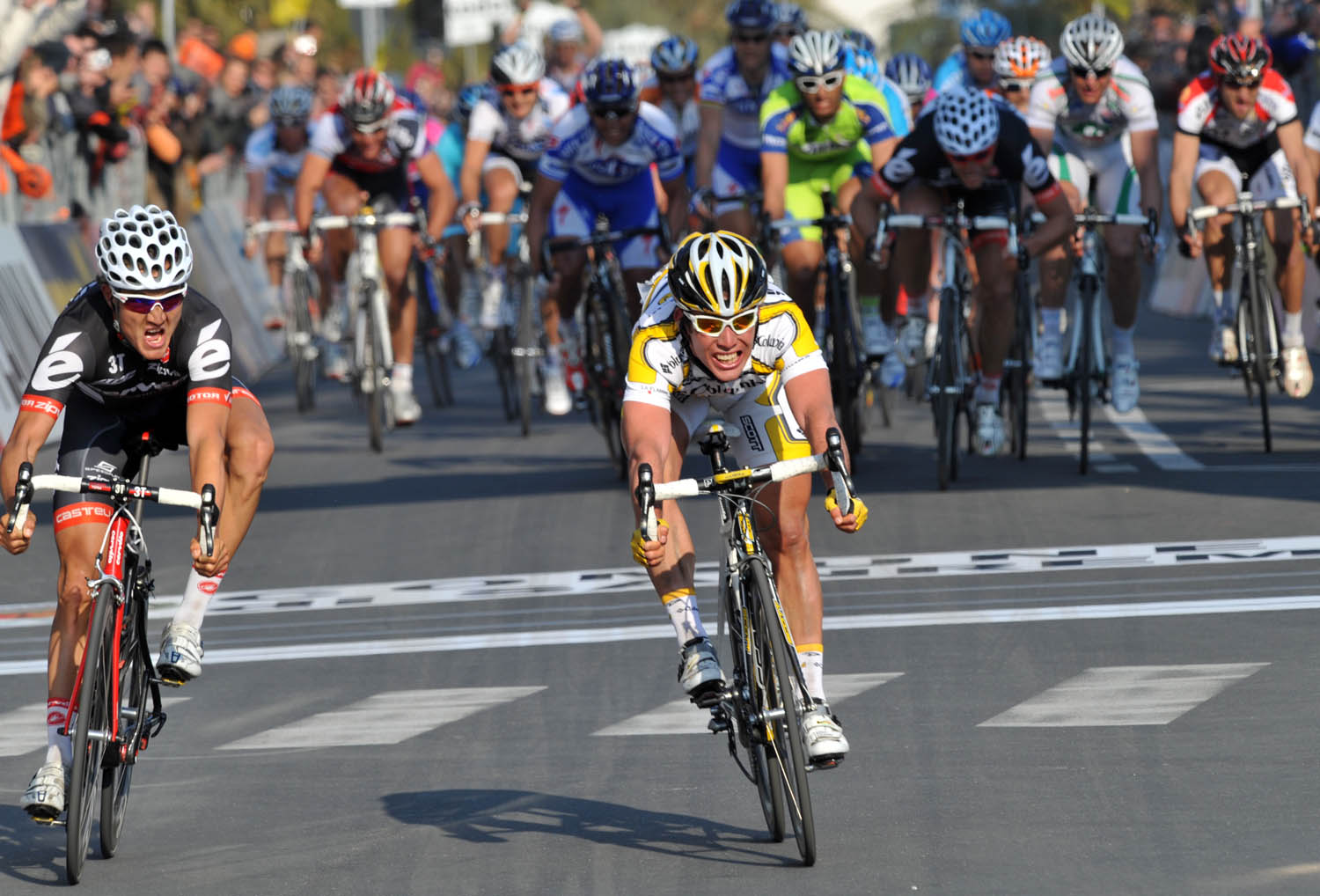
Cavendish explained why he has not yet been able to repeat his 2009 success.
"It's not easy to win San Remo, that's the simplest answer," he said.
"There's a handful of guys probably with a chance of winning, but more than a handful who believe that they have a shot of winning, which is different to any other race."
Cavendish has said that he will ride the 2018 race in support of his team after crashing out of Tirreno-Adriatico last week on the opening stage and fracturing a rib.
He said a few days before the start: "After crashing in Tirreno I’m obviously not in any sort of condition to win Milan-San Remo but having been able to train enough through the pain over the last few days I feel like I can go in support of my teammates."
Gregor Brown is an experienced cycling journalist, based in Florence, Italy. He has covered races all over the world for over a decade - following the Giro, Tour de France, and every major race since 2006. His love of cycling began with freestyle and BMX, before the 1998 Tour de France led him to a deep appreciation of the road racing season.
